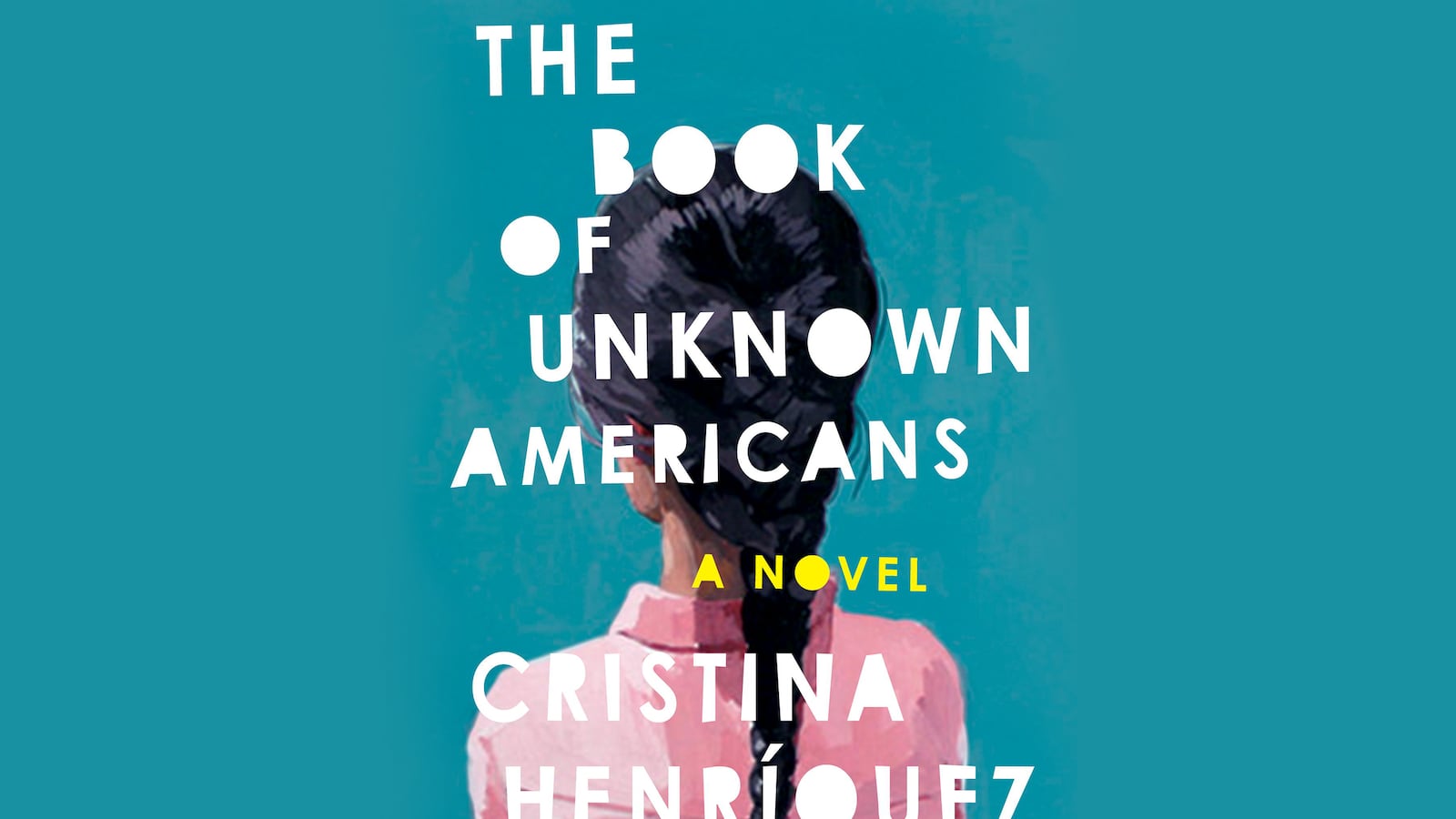Immigration reform is the unusual political debate in which those whose lives it most affects—the nation’s twelve million illegal immigrants—are rarely granted the opportunity to contribute. But politicians abhor a rhetorical vacuum, and they have clamored to fill it. Immigrants, Jeb Bush tells us, “cherish the values of hard work, faith, family, enterprise and patriotism that have made this country great”; on the other hand they are, according to Congressman Steve King, our heir to Ellison DuRant Smith, “mercenaries” who, if they enter illegally, are “defrauding the Department of Defense” and commit rampant homicide: “if they get their way, there will be more Americans that are actually dead.” Horatio Algers or murderers, immigration was at the center of the national conversation in 2014, an annus horribilis that saw the House Republicans repeatedly refuse to allow a vote on a comprehensive immigration reform bill that passed the Senate with bipartisan support. The House instead passed five separate bills to defund President Obama’s 2012 executive action, known as Deferred Action for Childhood Arrivals, which has granted work permits and deportation exemptions to undocumented immigrants who entered the country before turning sixteen. The Republicans’ stance was not helped by reports this summer that thousands of children from Central American countries were being detained in converted warehouses, often without access to legal representation, in violation of international law. The year ended with Obama’s memoranda to overhaul the immigration system, a broad exertion of executive power that ensured the issue will stalk the national discussion through the next presidential campaign cycle and beyond.
The one thing that unites both sides of the debate is the notion that immigrants “live in the shadows”—a cliché that has been used by Obama, Ted Cruz, Rand Paul, Joe Biden, John McCain, Hillary Clinton, and nearly every other politician who has demagogued on the issue. But who are the millions of people who “live in the shadows”? And what, for that matter, are the “shadows”? No one who lives in an American city requires a flashlight to detect the presence of immigrants or the challenges they face daily.
Literature can help answer these questions. Immigrant life has been one of the lodestones of American fiction for more than a century, from Willa Cather through Henry Roth, Paule Marshall, Vladimir Nabokov, Jamaica Kincaid, Sandra Cisneros, Gish Jen, Colum McCann, Jhumpa Lahiri, Aleksander Hemon, Ha Jin, Junot Díaz, and Gary Shteyngart. None of these writers set out to write an “immigrant novel,” or to make political statements. They wrote about subjects that they knew intimately, or that troubled or fascinated them, which is what all novelists do.

Cristina Henríquez’s The Book of Unknown Americans is conspicuous in its desire to do more than tell a story in which the characters happen to be immigrants. Its title, structure, and scope suggest a larger ambition. This is not just a story, but a state of the union. Or a ballad of the union, unwinding in alternating first-person narratives delivered by tenants who live together in an apartment building in Newark, Delaware—“an island for all of us washed-ashore refugees,” as its landlord describes it. The refugees come from Panama, Paraguay, Venezuela, Nicaragua, Mexico, Colombia, Guatemala, and Puerto Rico. The voices blend into a chorus, then fragment, as each tenant steps into the spotlight, announcing his or her nationality and origin story.
A central narrative emerges, concerning the star-crossed relationship between the teenage children of two of the families: the awkward, shy Mayor Toro and the beautiful Maribel Rivera, rendered distractible and nearly mute by a traumatic brain injury she suffered before immigrating to the States. But the stories of the Riveras and Toros are often interrupted by the stories of their neighbors. It is a conceit that serves no urgent narrative purpose, apart from creating a sense of a vast multitude, each character standing for many, as if to show how many varied forms immigrant life can take. We meet a boxer from Paraguay who has discovered, in his new country, a passion for real estate; a Puerto Rican woman who, when her acting career failed, moved to Wilmington and started a theater company of her own; a Venezuelan who, preyed upon by an evil American stepfather as a child, escaped to a shelter, worked as a waitress at a diner, and married a gentle man who always sat at the counter and ate blueberry pie.
Henríquez writes eloquently of the subtle, gradual transformation by which one becomes an American—a process that rarely coincides with the naturalization application process. When the Toros, after having been granted American citizenship, decide to return to Panama for a high school reunion, they are disturbed to learn that their old friends now consider them “gringo royalty”; in a rage they cancel the trip and never return again. There are tensions between law-abiding immigrants and illegals, the former constantly being mistaken for the latter and suffering the cruel consequences. Maribel, whose silence may owe more to loneliness and depression than brain damage, speaks for many of the characters when she complains that strangers don’t really “see” her; so does Mayor when describes the immigrant experience as feeling “simultaneously conspicuous and invisible, like an oddity whom everyone noticed but chose to ignore.”
Henríquez’s unknown Americans have problems and triumphs as diverse as any group of Americans, but as their stories accumulate it becomes clear that they all have one peculiar thing in common: they are all virtuous. Their motivations are pure; they work hard; and even though they are victimized by sexual assault, fired from their jobs without cause, and struggle to assimilate, they each come to love America and the opportunities it provides. They enlist in the military; they work their way up from busboy to dishwasher to line cook; they create businesses and raise families. They are model citizens, the kind of people whose lives might be used as exemplary stories by a politician in a stump speech. What conflicts do exist between them derive from misunderstanding and accident. In opposition to them Henríquez gives us a violent, bigoted, rapist white skateboarder, a boogeyman who harasses Maribel and antagonizes both her mother and Mayor. He says things like, “You’re some kind of retard. How do you say ‘retard’ in Spanish?” The skateboarder is as irredeemably evil as the others are noble.
There’s an unsubtle lesson here, and it threatens to suffocate the life out of an otherwise vital novel. At a time when too many Americans, forgetful of their own families’ roots, have taken to demonizing immigrants—particularly those who enter at the southern border—one can understand Henríquez’s temptation to tell a different story. Most immigrants are virtuous; most people are. But there is a messy middle territory between demonization and idealization. While politics tend to migrate toward the poles, humanity—and fiction, at its best—huddles in between.
Other notable novels published in 2014:
All the Light We Cannot See by Anthony Doerr
A Brief History of Seven Killings by Marlon James
Station Eleven by Emily St. John Mandel
All Our Names by Dinaw Mengestu
Dept. of Speculation by Jenny Offill
Orfeo by Richard Powers
Your Face in Mine by Jess Row
Pulitzer Prize:
The Goldfinch by Donna Tartt
National Book Award:
Redeployment by Phil Klay
Bestselling novel of the year:
The Invention of Wings by Sue Monk Kidd
About this series:
This monthly series will chronicle the history of the American century as seen through the eyes of its novelists. The goal is to create a literary anatomy of the last century—or, to be precise, from 1900 to 2014. In each column I’ll write about a single novel and the year it was published. The novel may not be the bestselling book of the year, the most praised, or the most highly awarded—though awards do have a way of fixing an age’s conventional wisdom in aspic. The idea is to choose a novel that, looking back from a safe distance, seems most accurately, and eloquently, to speak for the time in which it was written. Other than that there are few rules. I won’t pick any stinkers.—Nathaniel Rich
Previous Selections
1902—Brewster’s Millions by George Barr McCutcheon 1912—The Autobiography of an Ex-Coloured Man by James Weldon Johnson 1922—Babbitt by Sinclair Lewis 1932—Tobacco Road by Erskine Caldwell 1942—A Time to Be Born by Dawn Powell 1952—Invisible Man by Ralph Ellison 1962—One Flew Over the Cuckoo’s Nest by Ken Kesey 1972—The Stepford Wives by Ira Levin 1982—The Mosquito Coast by Paul Theroux 1992—Clockers by Richard Price 2002—Middlesex by Jeffrey Eugenides 2012—Billy Lynn’s Long Halftime Walk by Ben Fountain 1903—The Call of the Wild by Jack London 1913—O Pioneers! By Willa Cather 1923—Black Oxen by Gertrude Atherton 1933—Miss Lonelyhearts by Nathanael West 1943—Two Serious Ladies by Jane Bowles 1953—Junky by William S. Burroughs 1963—The Group by Mary McCarthy 1973—The Princess Bride by William Goldman 1983—Meditations in Green by Stephen Wright 1993—The Road to Wellville by T.C. Boyle 2003—The Known World by Edward P. Jones 2013—Equilateral by Ken Kalfus 1904—The Golden Bowl by Henry James 1914—Penrod by Booth Tarkington 1924—So Big by Edna Ferber 1934—Appointment in Samarra by John O’Hara 1944—Strange Fruit by Lillian Smith 1954—The Bad Seed by William March 1964—Herzog by Saul Bellow1974—Zen and the Art of Motorcycle Maintenance by Robert Pirsig1984—Neuromancer by William Gibson1994—The Stone Diaries by Carol Shields2004—The Plot Against America by Philip Roth






